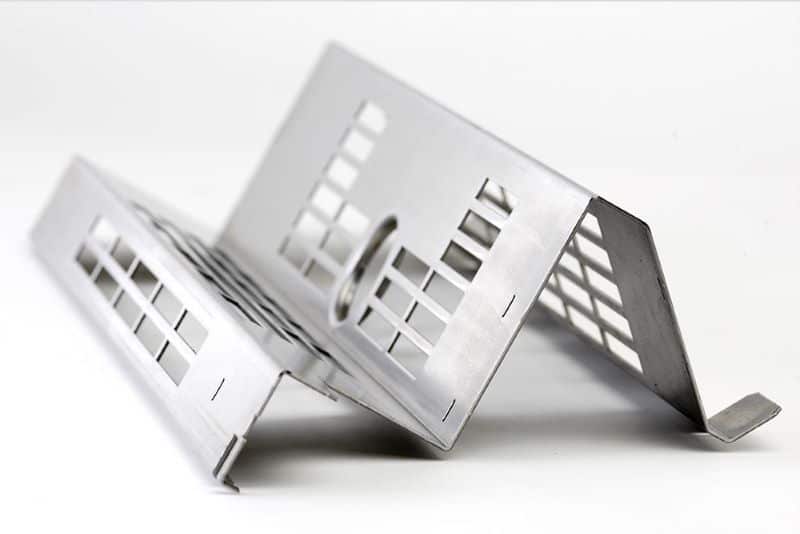Let s say i have a 2 mm thick sheet and i want to bend it.
Bending aluminum sheet minimum radius.
Table 1 preferred recommended 90 degree bend radii for various sheet metals.
Per the aluminum association inc.
This tool allows you to determine tonnage internal radius v die opening and minimum flange you just have to insert the characteristics of the sheet metal to be bent.
Discover all our calculation tools in the calculators section of the top menu.
Say you get a print that says you need to bend a part to an external angle of 100 degrees that s an internal angle of just 80 degrees.
The tables below show bend radii and minimum bend sizes for materials and tooling combinations stocked by protocase.
The tool can calculate the required bending force for bending aluminum stainless steel mild steel and weldox or strenx high strength steels.
Aluminum where necessary 5052 h32 may be bent to 1t and 6061 t6 to 1 1 2t.
Thick grade 350 and 400 may have a minimum bend radius of 2 5 times the material thickness when transverse bending while longitudinal bending may require a minimum bend radius that s 3 75 times the material thickness see figure 1.
In steel between 0 5 and 0 8 in.
Since commercial sheet metal bending can be done with less concern for stresses caused during forming operation the radius can be near zero for thin sheet metal.
It is possible to choose other bends if you require but additional lead time and tooling charges may apply.
The minimum inside bend radius is even larger when bending with the grain.
The bend radii listed are standard minimum if manufacturing for aircraft and aerospace applications.
Still if you want to avoid cracking abide by the minimum bend radius in 0 25 in thick 6061 t6 which is quite large see figure 3 and avoid bending acute angles.
I can now see that the minimum flange length is 8 5 mm for such a bend so i have to keep it in mind when designing.
Use this document to choose values that are both manufacturable and meet your needs.
Bend radii minimum bend sizes.
Radii for various thicknesses expressed in terms of thickness t.
The minimum bend radius for aluminum when working with aluminum over sheet metal several variables need to be considered.
Aluminum is typically thicker and stronger and requires more force to bend as well as consideration of edge conditions and punch nose radii.
Recommended minimum bend radii for steel and aluminum.
To keep it simple i also use a 2 mm inside radius.
Aluminum minimum bend radii for 90 degree cold forming of sheet and plate.
Sheet metal bend radii if these guidelines are not followed more research and or some form of analysis may be requried.

